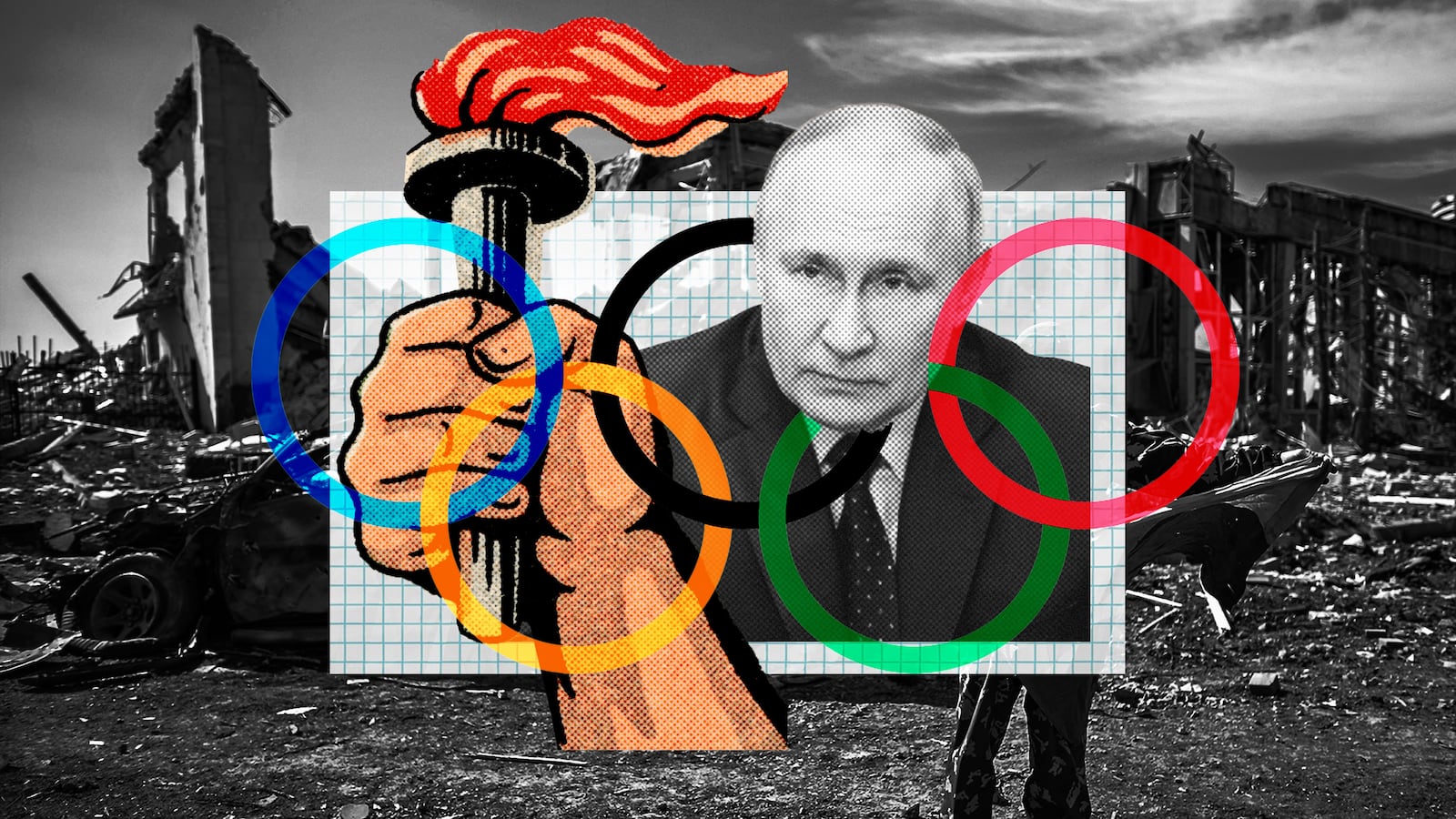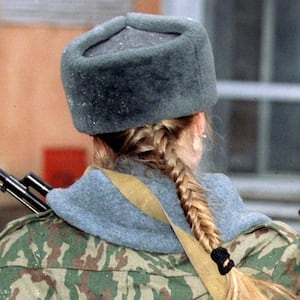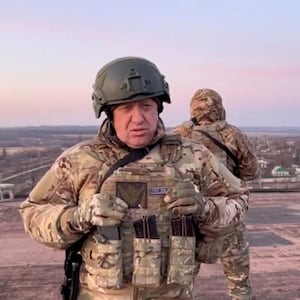News that the International Olympic Committee will allow Russian and Belarusian athletes to compete in international competitions has enraged athletes from Ukraine and around the world, many of whom are vowing to fight back against the controversial decision.
On Tuesday, the IOC issued recommendations allowing Russians and Belarusians to compete in future competitions as “neutral” athletes, without a flag or other national identifiers—provided they “don’t actively support the war.” The IOC, however, stopped short of giving a final answer on whether athletes from those countries will be allowed to participate in the Paris Olympic Games next year, adding that “IOC will take this decision at the appropriate time, at its full discretion.”
Dozens of athletes and Olympians immediately railed against the decision, including two-time Olympic skeleton competitor Vladyslav Heraskevych, who blasted the recommendations as “absolutely wrong” in a conference call Wednesday.
Moscow “uses sport to further brainwash to persuade people … If they don’t face strict punishment, then it’s just empty words,” Heraskevych said. “There are statements about sports building bridges. We tried to build bridges for eight years. It’s terrible to understand that war actually started in 2014 when Russia hosted the Olympic Games, our territories were occupied. It was clear back then that the Olympic Games helped increase Russia’s image on a very high level.”
In response to a question from The Daily Beast, Heraskevych lamented “the comments and messages on social media” which he and other Ukrainian athletes say they have seen from Russian competitors supportive of the war in Ukraine. “It’s very disappointing for us, and for me especially, a very big shock when they keep silent, or give support to the war, or participate in [propaganda] events.”
“That’s not the future we want,” he added.
Lesia Tsurenko, a Ukrainian tennis player, shared similar concerns.
“From the beginning of the war, they spread information on tour to say that it’s the right thing to do, Russia is the best, strongest country in the world,” she said. “If supporting the war is OK, then what else is OK? Why is no one talking about discrimination against Ukrainians? We only hear about the discrimination of Russians and Belarusians.”
‘Day of Shame’
Others, like Estonian biathlete and three-time Olympian Johanna Talihärm, were especially taken back by remarks from Alexandra Xanthaki, a United Nations special rapporteur who offered the IOC advice on the recommendations in a virtual summit this week.
“I don’t think that it makes sense to exclude all Russian soldiers and all Russian military,” Xanthaki reportedly said during the meeting, angering some athletes present at the meeting, including the biathlete.

Vladyslav Heraskevych.
Edgar Su/ReutersAccording to Talihärm, the UN adviser interrupted her while she was sharing her thoughts on the IOC’s decision, saying that it was time “to move on” to another topic.
“The most important point is the disrespectful communication by Alexandra Xanthaki towards the athletes,” Talihärm said in a comment to The Daily Beast, adding that “she failed to mention [the rights of Ukrainian athletes] completely.”
Talihärm emphasized that the manner in which different sports federations adopt the Olympic recommendations would be a “crucial” part of evaluating the IOC’s decision. But, she pointed out, “Historically not many have challenged their views… And if a sport doesn't follow the rules of the Olympic movement a sport might risk being removed from the Olympics. So there is a huge pressure to follow the rules and guidelines.”
The IOC did not respond to a comment request from The Daily Beast by time of publication.
It’s not only athletes who have taken issue with the IOC announcement and the words of IOC President Thomas Bach, who said that “sports organizations must have the sole responsibility to decide which athletes can take part in international competitions based on their sporting merits and not on political grounds or because of their passports.”
Government officials from Poland, the Czech Republic, and other countries offered very public condemnations of the announcement, including Polish Deputy Foreign Minister Piotr Wawrzyk, who called it “a day of shame” for the IOC on Twitter.
Russian Olympic Committee chief Stanislav Pozdnyakov, on the other hand, blasted the recommendations as “discriminatory”—despite the uproar from athletes and public officials around the world who view the guidance as too lax.
Meanwhile, Ukrainian athletes are left to grapple with the consequences of the IOC’s decision.
“It is an ethical conflict,” tennis player Tsurenko said in the Wednesday conference of the possibility of being forced to compete against a Russian athlete. “I had panic attacks.”








